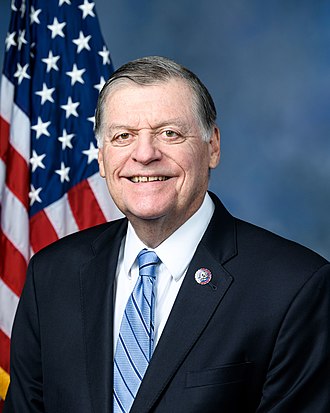The 413’s Top House Dems Reorganized into Committee Minority…
Some weeks after the drama of the election for Speaker of the United States House of Representatives, the Republican-controlled body has begun organizing committees. That includes the two panels Western Massachusetts’s reps once chaired. Retirements and the shift in control did not just hand the gavels over to James McGovern and Richard Neal’s GOP counterparts. It also changes membership.
Republicans revealed their committee lineups quite quickly. It took some time for Democrats to do that same. As of last week, Democratic House leadership named their members and McGovern and Neal welcomed their committee colleagues. But by winning the House majority, Republicans also won majorities on committees. That pushed some Dems out.
During the last two Congresses, McGovern of Worcester chaired the Rules Committee and Neal of Springfield helmed Ways & Means. Both are powerful bodies within the House influencing policy and, in Rules’ case, chamber governance itself. Republican control put once-Ranking Member and Oklahoma Rep Tom Cole in charge of Rules. Neal’s GOP counterpart retired last Congress. That prompted a contest from which Missouri Congressman Jason Smith emerged on top of Ways & Means.
Often termed the “Speaker’s committee,” Rules, by design, has a majority proportionately larger than the House’s. That ensures the majority controls debate on bills. Nine Democrats had to slim down to four, one of whom is McGovern. Among Rules Democrats who served in the last Congress, only Mary Gay Scanlon of Pennsylvania and Joe Neguse of Colorado remain. For whatever reason no incumbent Dem on the committee wanted the last spot. Democrats tapped New Mexico Rep Teresa Leger Fernandez to fill it.
“Serving on the House Rules Committee is an extraordinary opportunity to shape major legislation before it goes to the House Floor. Our incredible Democratic members will play a pivotal role over the next two years—fighting for lower costs, better-paying jobs, and safer communities for all our families,” McGovern said in a statement when assignments came out. “This is an amazing group of lawmakers whose unique backgrounds and powerful leadership will be invaluable in the days ahead.”
On the Republican side, membership leaped from four to nine. All four Republicans from last term remained. Somewhat controversially, some of the five who joined were members that helped force Speaker Kevin McCarthy through 15 excruciating rounds of voting. Congressmen Ralph Norman of South Carolina and Chip Roy of Texas voted against McCarthy until the 12th ballot.

Rules Chair Tom Cole. (via wikipedia)
The other three Republicans, Erin Houchin of Indiana, Nicholas Langworthy of New York and Thomas Massie of Kentucky voted for McCarthy throughout.
At the committee’s organizational meeting on January 30, Cole welcomed new and returning members.
“To our new members in particular, we are happy to have you. I think you will find your service on the Rules Committee challenging, particularly during the longer meetings, but also deeply rewarding,” the chairman said.
Cole went on to assure he would continue to observe the courtesies McGovern had extended as chair, including the absence of a five-minute rule. However, with a fair and open opportunity to speak comes an expectation of respect. That is unlikely to be a problem for Cole and McGovern. They have gotten on famously despite their deep ideological differences and leading the House’s most partisan committee.
Cole specifically welcome McGovern back as ranking member after four years as chair through difficult and “consequential” times.
“Through it all, you ensured that the Rules Committee operated in a collegial fashion, in a manner that ensured that all viewpoints could be heard during our discussions,” he said to McGovern. “You have my deepest appreciation for all you have done during your service as this committee’s chair, and I’m delighted that you will continue to serve with us as our ranking member.”
For his part, McGovern recognized Cole for his service as the longest-serving Native American member of the House and the first such chair of the Rules Committee.
“I want to thank you for helping us navigate the last four years in a way that I think promoted civil discourse and upheld the Integrity of the work that we do here despite our strong differences of opinion and vigorous debates on important issues,” McGovern said.
McGovern would later say the GOP agenda “alarmed” him nor did handing the gavel over thrill him. However, he added, “My disappointment is slightly tempered because I know that it is going to somebody who cares deeply about this institution, who cares deeply about this committee and who cares deeply about this country.”
The situation was not quite as warm on the Ways & Means side, if not exactly icy.
As on Rules, Democrats had to drop members from Ways & Means. Three Democratic retirements helped get from 25 to 18 members, but it was not enough. While Rules has its lifers, too—that’s how McGovern became chair—Ways & Means is especially desirable as its jurisdiction is helpful with constituent services and fundraising like Social Security and taxes.
Only three more had to stand down for the 118th Congress. California Representative Jimmy Panetta would have lost his spot, too. He kept it because Pennsylvania Rep Brendon Boyle left Ways & Means to become ranking member on the Budget Committee. He has a waiver to retain his seniority on Ways & Means in future congresses, however.
Committee staff said he would keep in touch the departing members in the fold and support them until they could return in the next Congress.
The Republican side was a bit more chaotic due membership changes in the last congress. Among the disruptions was the tragic death of Indiana Congresswoman Jackie Walorski last August. Republicans welcomed 10 new members to Ways & Means to fill out their 25 seats.
On the subcommittees, Democratic ranking members did not change. Republicans reshuffled their subcommittee chairs, including to fill Walorski’s spot heading what had been the Worker and Family Support committee.
Renaming that subcommittee the Work and Welfare Subcommittee became a subject of some controversy at the Ways & Means organizational meeting this past Tuesday. The incoming majorities of either party often switch or rename committees and subcommittees. Yet, this revision would receive specific attention.

The Ways & Means chairman is a Smith? Agent Smith? No, not yet… (via Warner Bros.)
In their remarks, both Neal and Smith paid tribute to the committee’s history. Each told quite different stories about the last six years. There were two versions of the Republican tax cut that largely benefits the wealthy, the infrastructure spending Democrats had passed with GOP votes last Congress, the American Rescue Plan Act and the COVID-19 relief both parties had supported in 2020.
Beyond that, Smith announced a field hearing in West Virginia. Smith also made a dubious if not uncommon claim about social programs the now-Work & Welfare Subcommittee will oversee.
“We must reconnect the Child Tax Credit to work and reorient welfare programs to help families get back on their feet,” he said. “The purpose of welfare is to help people going through a rough patch, not trap families in a cycle of dependence for generations. Work should pay better than sitting at home.”
Unlike his GOP predecessor Kevin Brady, Smith offered few olive branches to Democrats and no mention of Neal until he turned the mic over to the Democrat. Neal, by contrast acknowledged Smith’s elevation and wished him luck as chairman.
“Let me congratulate Chairman Smith. It sounds nice because it is,” Neal said noting that he got calls from former Republican chairs Bill Archer and then-outgoing Speaker Paul Ryan. “You now have the best job in the House of Representatives. I look forward to working with you and all of us on our side wish you good luck.”
Ever the history teacher, he noted the committee’s role in the country’s arc from the Louisiana Purchase to world wars. But after noting the committee’s more recent history under his chairmanship, Neal panned the name Work & Welfare Committee.
“The term you have chosen on Welfare for that committee is pejorative. That can be changed,” Neal said noting prior Republican chairs called it the Subcommittee on Human Resources. That name confused but did not offend he said.
Neal cited a child education program that Congress named in the late Walorski’s honor as an example of its work.
“We acknowledge the majority’s right to administer the committee as they wish, but we cannot participate in any effort to denigrate any member of the American family that we are charged with helping,” he said.
The Committee had an intense if civil debate about the name. Democrats charged the term welfare was inflammatory as a callback to accusations of cheating and scamming. Republican implications of recipient loafing did not exactly disprove Democrats’ point. Neal proffered an amendment to change the subcommittee’s name to Worker & Family Subsistence. After a spurt of additional debate, Neal withdrew the amendment.
Alabama Democrat Terri Sewell moved to change it to Worker & Family Assistance. She, too, withdrew her amendment but emphasized that the new name could become a distraction.
“If people can’t get behind beyond the words that some people find offensive then ‘what’s the point?’ is my point,” she said.
The committee adopted its rules shortly after that. Despite the dissent on the subcommittee and the strident priorities from the chair, any enmity did not last. As the mic stayed hot, Smith could be heard thanking Neal.
“You got through it,” Neal replied.
Smith, appearing relieved, seemingly comments, “First one has to be a nerve-racker,”
“Of course it is,” Neal quips.


